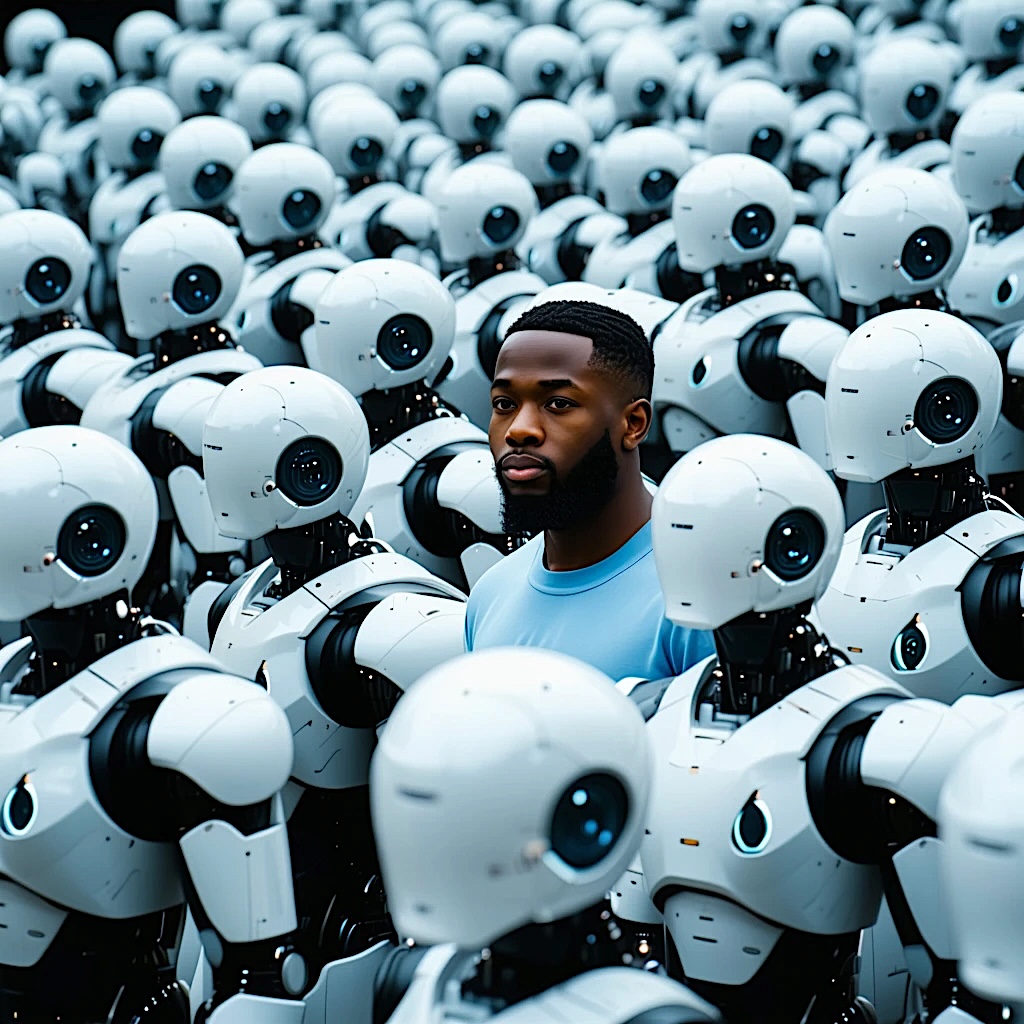Prove You’re Human, Stupid
The very companies building the most advanced AIs are also investing heavily in mechanisms—captchas—designed to prevent machines from impersonating humans.
Every day, we (humans) increasingly struggle to prove we’re human—while machines have no trouble solving these annoying puzzles. We’ve reached a point where deciphering distorted text, “finding the penguin,” or identifying blurry images of bicycles is more challenging for a human than for a multimodal model like GPT-4 or Gemini.
And the more intelligent machines become, the more difficult it will be for humans to prove they are human. This arm race is absurd, and cannot go forever.
This is also more than an irony—it is a structural contradiction. We have spent decades building intelligent systems designed to match or exceed human capabilities, while simultaneously developing tools to keep such systems out of our digital spaces.
This leads to a paradox that looks like technological schizophrenia: a world where humans must increasingly pass tests designed to thwart the very intelligence they have created.
Beyond Captchas: Building the Human Layer
But this is more than a UX problem. It’s a civilizational one.
If anyone, anywhere can spin up an AI that mimics human behavior, we need a way to prove personhood in digital spaces.
A growing number of projects are developing new methods to distinguish humans from machines, moving beyond outdated captcha logic. I know about a dozen, more or less active or advanced, but I believe these two are the most promising:
- World (formerly Worldcoin, co-founded in 2019 by OpenAI’s Sam Altman), using iris scans to create a unique, private “proof of personhood”—verifiable online without revealing your identity;
- Humanity Protocol (founded in 2023), based on palm recognition, to let people authenticate themselves privately and persistently.
Both projects adopted a similar approach using biometrics, blockchains, crypto tokens ($WLD and $H, respectively), and Zero-knowledge proof (ZKP). They are both somewhat controversial—in my opinion for misguided reasons, rooted in a lack of understanding of ZKPs or ideological bias against biometrics and crypto. Both can be considered early-stage projects, but they are gaining traction: as of May 2025, World has more than 12 million verified users (and 8 million monthly active users), while Humanity Protocol has already onboarded more than 6 million people to its testnet.
Even if these projects are not perfect, they are absolutely necessary.
In the age of AI, we need a universal human credential—something as essential as a web browser, a bank card, or an email address. A public layer of decentralized trust that lets anyone prove they are a person, without proving who they are, and, preferably, without leaking personal data, exposing biometrics, or depending on centralized surveillance systems.
One way or another, we urgently need an actual digital boundary between real users and algorithmic agents, between humans and machines. Without it, the digital world will become a blur of anonymous entities, with no clear way to know who—or what—we’re interacting with.
The Ultimate Paradox
But the issue runs deeper than online access or fraud prevention.
One of the main purposes of AI development is to build agents that can act on our behalf—intelligently, autonomously, and efficiently. We are already witnessing the rise of such systems. AI agents can now book appointments, write emails on our behalf, manage our calendars, handle online purchases, or fill in complex forms. In the near future, they will manage taxes, customer service interactions, travel arrangements, and more.
And this won’t just be convenient—it will be preferable.
Humans are erratic, emotional, unreliable. They make mistakes, they get nervous, they can be rude. At one point of this AI-led evolution, service providers and merchants will probably prefer to deal with AI agents representing humans, rather than with humans themselves.
Companies like Walmart are already preparing for AI-powered shopping agents to become their next major customers. Soon, human interactions may feel like a liability.
Need to renew a passport? Your AI assistant can handle it. Want to resolve a billing dispute? Your bot speaks the call center’s language better than you ever could. These systems aren’t speculative—they’re already outperforming the humans they represent in key tasks.
Which brings us to the final twist.
If bots and agents become the default interface to digital life, and they do it better than we do, then captchas will flip. In the future, we may not be asked to “Prove you’re not a bot.” Instead, we may be required to prove we are a bot—or at least represented by one.
At that point, we may see captchas blocking humans—and allowing in only verified agents.
That is the true paradox of our time: we built machines to replace ourselves—then built barriers to stop them. Now, we may be forced to accept the reality that the AIs we’ve created are not just our tools, but have become our official delegates.
The final paradox? A world where machines are welcomed—and humans have to prove they’re worth letting in.
Co-written by Cyril Fievet and ChatGPT (v. 4o).
Image by Stable Diffusion through Replicate.
Some links may be affiliate links.
